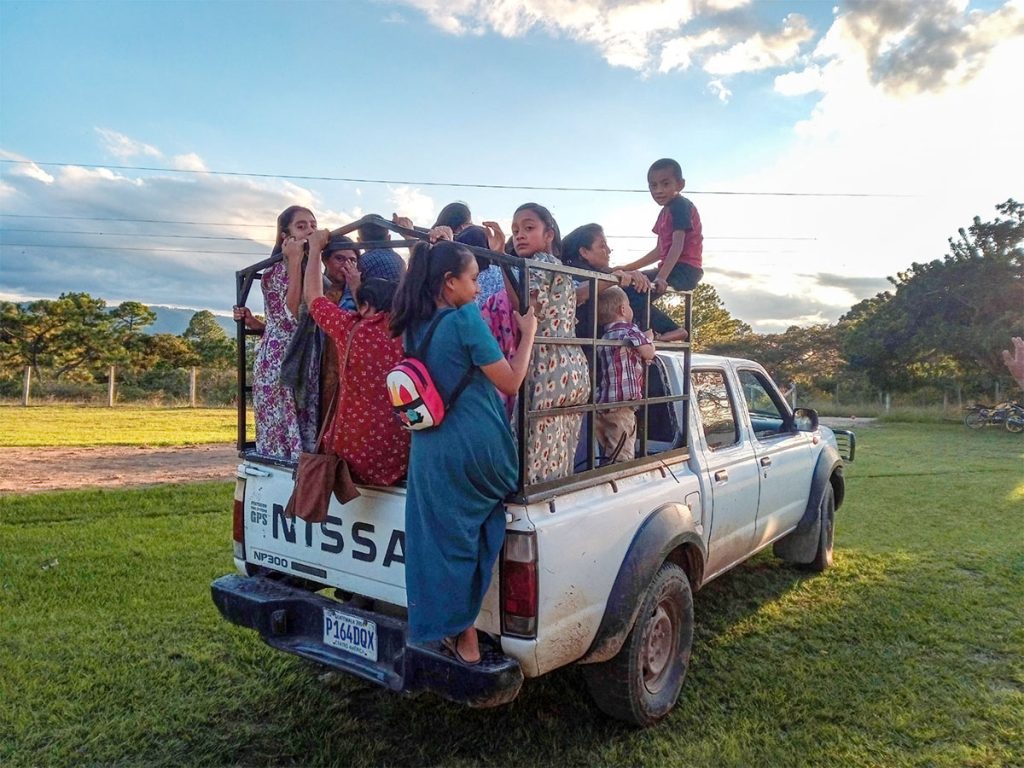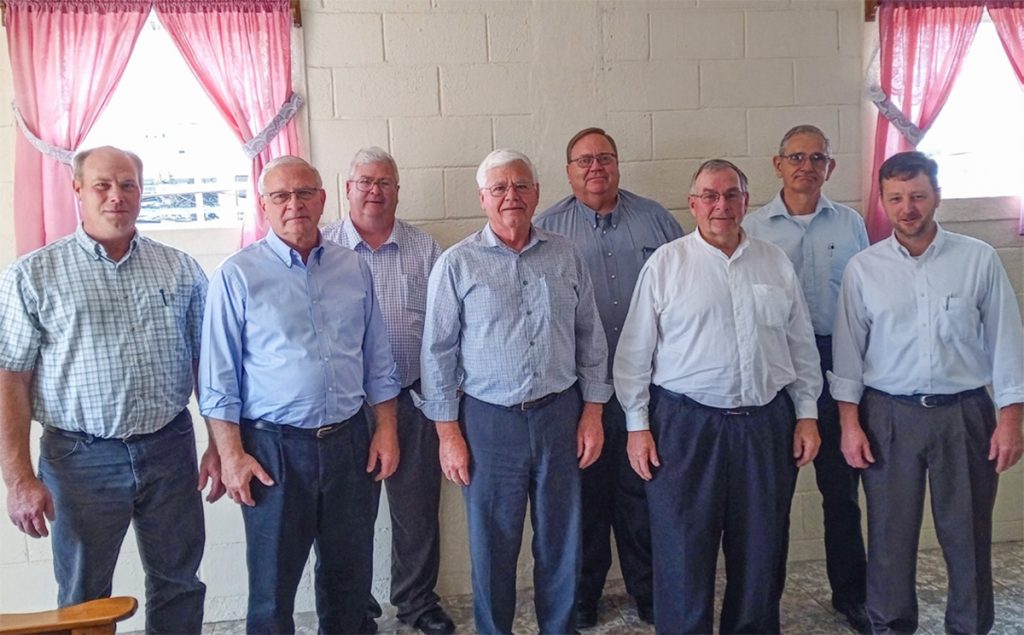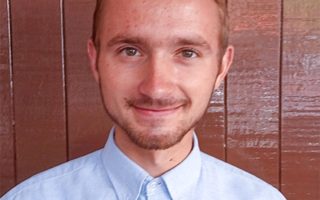
An example of local transportation
Adjustments, Part 2
Moving to a foreign land requires adjustments… many adjustments! Upon moving to Guatemala, a new missionary from the United States or Canada will face many changes. Here is the conclusion of the list started in the previous issue.
Families: Living arrangements are often different than what you grew up with. Your neighbors may have twelve people sleeping in two bedrooms. Multiple generations living together is very common. But it is also sadly common for the father, a son, or other family members to be away working in the city, down on the coast, or in the United States for months or years at a time. It is an adjustment to finally meet a recently returned member of a family you know quite well—you thought you knew the whole family. But no, here is somebody new. But your biggest adjustment will likely be your own living arrangements. Single staff in their twenties or thirties may find themselves sharing a house—or at least dining—with a young family.
Transportation: Public transportation is widely available and offers you a choice between a “chicken bus,” microbus, and sometimes a coach bus for long trips. Motorcycle, tuk–tuk, or walking are your options for local trips. If you have your own car, you will become an unofficial part of the public transportation system. And yes, you should generally charge your riders the going rate.
Traffic: Slow traffic. If you live in the city, you will deal with this every day. If you live at an outpost, you will probably face this only about every two months, but you will plan your arrival and departure times to avoid the worst hours, even if that means waking up or going to bed at an unearthly hour. Fast traffic. In the United States and Canada, buses drive slowly and exceedingly carefully. In the mountains of Central Guatemala, the buses are the biggest, baddest, loudest, and fastest vehicle on the road. Yes, even (or especially) on the roads with many switchbacks, grades, and sheer cliffs. The buses race each other to get the next passengers. They pass each other on blind curves, laying on their horns to warn oncoming traffic. Do not race them. Also, hold your breath if you happen to be right behind them when they take off from a stop… diesel smoke is very bad for your lungs. Also, do not forget to watch out for motorcycles, overloaded and underpowered pickups, speed bumps, cows, pedestrians, or worst of all, drunks lying on the road.
Dirt Roads: Only a few outposts don’t have paved roads to their town in these modern times. But those who don’t have that luxury will very soon adjust their driving and riding techniques.
Shopping: This may be the most fun adjustment! Buying food at the market is something of an experience and can lead to many interesting discoveries. A very useful strategy to avoid paying the “gringo premium” is to listen to a native haggle with the seller. Then when they agree on a price, step up and say, “I’ll take a pound of that too!”
Schools: Christian education is vitally important to us conservative Mennonites. But should a missionary family send their children to the church school to learn in Spanish? Or should they homeschool in English? Or some hybrid arrangement?
Lines: You learned “reading, ’riting, and ’rithmetic” in school. You will learn patience as you stand in line at the bank or the clinic or the passport office or… you get the point.
Immigration/customs office: You will also learn what it is to be a noncitizen seeking legal residency status in a foreign land from unsympathetic bureaucrats who may or may not have just run out of coffee or whatever else they need to stay sane.
Medical care: Dental work is cheap. Eye care is very affordable. The government clinics don’t charge at all (but you might be better off avoiding them!). Thankfully, there are some good private clinics (such as MAM’s clinic in Oratorio) and hospitals and some very good missionary doctors and nurses who can be called for advice. But for many of us, that doctor or hospital is still at least an hour away…
Babies (care): Guatemalans love babies. And they freely dispense advice on how to properly care for your baby. Some of the advice is very amusing. And some advice is very helpful!
Birthdays: Birthday parties are really important in Latin American culture. Balloons, streamers, piñatas, and meat of some kind are indispensable for a proper celebration. Cake is mandatory. So is taking a bite out of the edge of the cake while trying to avoid getting your face smashed into it! Getting a bucket of water dumped on you is also somehow a necessary part of turning a year older.
Climate/weather: Near the coast, or in the Petén, you will experience high heat and humidity most of the year, as well as spectacular thunderstorms. In the mountains, you will experience intense sun and dust for about two months of the year. Otherwise, you will have mostly gorgeous weather in the “land of eternal spring.”
Natural beauty: Instead of four seasons, you will see just two: rainy season and dry season. Both have their beauty, and flowers of some kind will bloom all year. There are many birds, insects, and plants that you will not find in the United States or Canada. You will also find volcanoes in Guatemala, including three active ones.
Trash: There is a shocking amount of trash littering the roads, fields, rivers, parks, and everywhere else there are people. Trash generation is a problem common to humankind but is covered up better in wealthier countries.
Sugar: You will probably actually consume more sugar in Guatemala than you ever did before. Cake is eaten (see “Birthdays”) with soda and the coffee probably has more sugar than coffee!
Prayer: Your prayer life will change, or at least it probably should! You will likely hear the most passionate prayers you have ever heard at prayer meeting. You will soon have a long list of prayer requests, filled with the names of many unsaved or discouraged individuals and families. Another difference is kneeling on the hard floor of the church for at least a half hour during prayer meeting. Your knees may never be the same again!
Vice: You will likely see the raw “un-sanitized” realities of sin around you up close and personal. You probably never saw many drunks sleeping in the streets of your hometown or have them knocking on your door! You will likely face a somewhat different set of temptations yourself when on the mission field. In some ways, the darkness is darker on the mission field than it is in the community you left.
But one thing that is not different here in Guatemala? People need the Saviour. They need to hear the Good News of salvation from sin. Then they need someone to show them how to live the Christian life. Could that someone be you?
~ Justin Zimmerman
Without Power
Electricity is one of those conveniences one rarely thinks about—until it is abruptly cut off. Here in Guatemala when rainy season comes, the electricity often goes. Falling trees, lightning strikes, or landslides are all common disruptions of the power distribution system.
Recently our area experienced four full days without electricity after back-to-back thunderstorms knocked down several trees and poles. For those who only use electricity for lights and phone chargers, the disruption was barely noticeable. For those homes and tiendas with freezers, the situation was rather critical. No business owner wants to lose a freezer full of valuable ice cream or chicken! So, out came the few generators in the community to keep the freezers going.
Thankfully, most power outages are fixed within twenty-four hours, and most outages occur only during a relatively short season of the year. Being “without power” is inconvenient, but I was recently impressed by a short passage in the Book of Mark that speaks of a different kind of power.
Jesus was in the temple during the final days of His ministry when He was questioned by the Sadducees. The Jewish sect known as Sadducees was small but influential, closely allied with the Roman authorities and heavily represented in the upper echelon of Jewish society. One of their distinctive beliefs was the denial of the existence of spiritual beings and the resurrection of the dead for the final judgment. The group that questioned Jesus presented a hypothetical situation designed to confuse and trap Him in His words. But His reply was sharp and direct.
And Jesus answering said unto them, Do ye not therefore err, because ye know not the scriptures, neither the power of God? (Mark 12:24).
You “know not . . . the power of God” is a pointed indictment of the condition of these spiritual leaders of the Jewish people. After all, even unclean spirits knew the power that Jesus possessed.
And there was in their synagogue a man with an unclean spirit; and he cried out, saying, Let us alone; what have we to do with thee, thou Jesus of Nazareth? art thou come to destroy us? I know thee who thou art, the Holy One of God (Mark 1:23, 24).
To not know, to essentially be “cut off from” the power of God is somewhat like being without electricity. With the power on, amazing things can be accomplished, illumination is easy, and communication is much more advanced. Without it, what should be routine becomes difficult, it is hard to see in the darkness, and communication is hindered or halted altogether. The Sadducees (and the Pharisees and even the Twelve) did not know the power of God. Their thinking was muddled, the truth was obscured and they did not understand how to really communicate with the Creator. But very soon, the power of God would be revealed when Jesus rose from the grave. The disciples of Jesus would soon be filled with the Holy Spirit, and they would experientially know the power of God.
The power of God routinely changed the lives of zealous Jews into hope-filled Christians. It changed lost Gentiles into illuminated disciples of Christ. The Apostle Paul frequently mentions this power of God in his writings. He opens his letter to the Romans: And declared to be the Son of God with power, according to the spirit of holiness, by the resurrection from the dead (Romans 1:4, emphasis added).
This power made Paul and the other apostles bold in their witness, even in the face of death. For I am not ashamed of the gospel of Christ: for it is the power of God unto salvation to every one that believeth; to the Jew first, and also to the Greek (Romans 1:16).
Paul even declares that hardened unbelievers have no excuse for not recognizing the power of God. For what can be known about God is plain to them, because God has shown it to them. For his invisible attributes, namely, his eternal power and divine nature, have been clearly perceived, ever since the creation of the world, in the things that have been made. So they are without excuse (Romans 1:19, 20 ESV; emphasis added).
Jesus reprimanded the Sadducees for not knowing the power of God. Paul declares that men have no excuse; evidence exists for a powerful Creator at work in the world. This power can raise the dead and convert the sinner. Is it true in our day and in our ministry? Do we know the power of God? Are we plugged into the source of life-giving power? I trust so, for without it, our mission will fail.
~ Justin Zimmerman
Staff News
- Ria Ringler
- Josiah Mast
- Anthony Wadel
We recently welcomed Josiah Mast from Alturas, California. He is a member of Alturas Mennonite Church and will serve at headquarters in Guatemala City.
Ria Ringler from Churchtown, Pennsylvania, is serving in El Guayabo for three months. She is a member of Blue Ball Mennonite Church. Welcome to Guatemala!
Anthony Wadel recently completed his term of service here in Guatemala. The folks in Santa Rosita will miss him, but we wish him the Lord’s blessing as he transitions back to life in Georgia.
Board Meeting

Left to right: Darel Myers, Amos Hurst, Duane Eby, David Martin, Wesley King, Lee Lehman, Keith Crider, Brian Yoder.
For many years, the MAM board of directors met in Guatemala once a year in addition to regular stateside meetings. That tradition was disrupted by Covid-19 travel restrictions in the past several years. We were recently blessed to have eight of the nine active board members spend time in Guatemala in June. We hope their annual visits can continue!
Prayer and Praise Items
- Pray for the bishops of the MAM congregations, that they may have good health and much wisdom in their work.
- Pray that the members of the churches would have boldness in testifying to their unsaved family and neighbors.
- Pray for the upcoming elections in Guatemala, that there may be peace in the country.
- Praise God for freedom to meet openly and work for the Lord.




